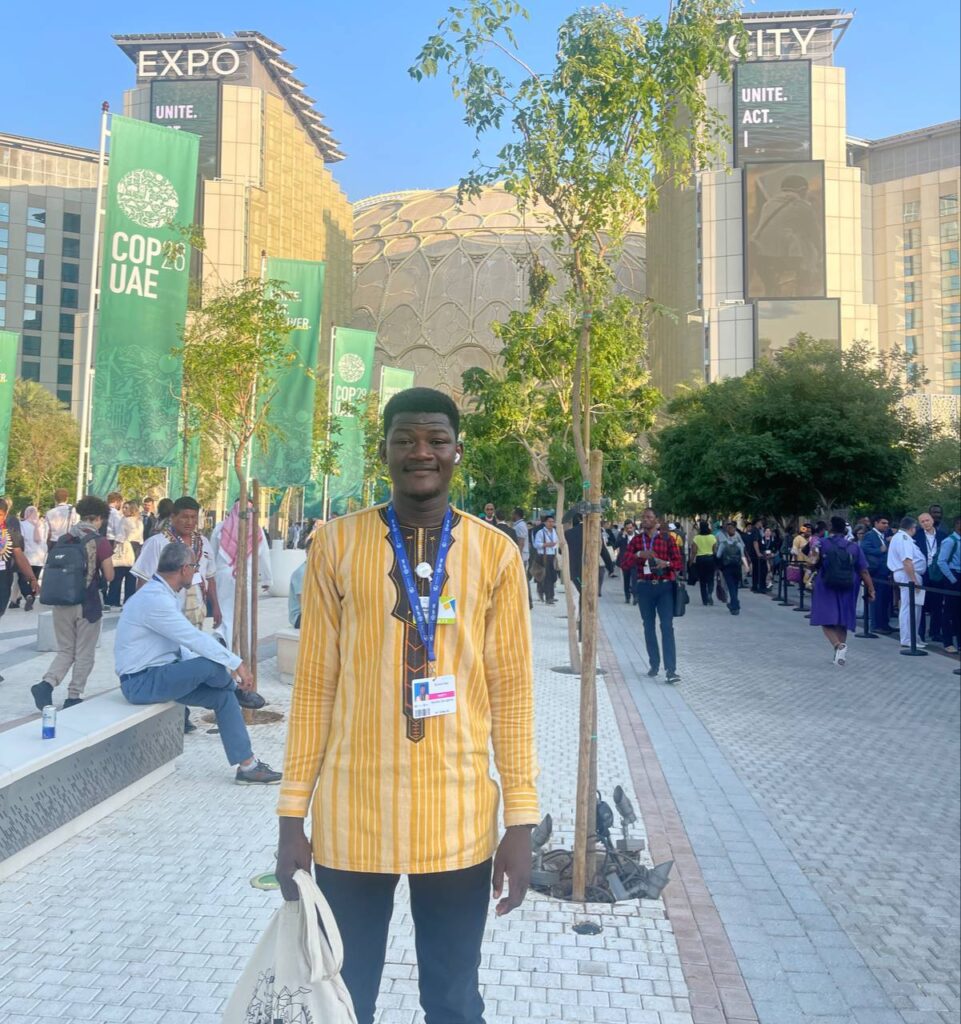
The United Nations Climate Change Conference, commonly known as the COP (Conference of the Parties), convened in Dubai, United Arab Emirates, from November 30 until December 12, 2023. COP28 emerged as a crucial platform, uniting global leaders, experts, and stakeholders to address the pressing issue of climate change.
To put it simply, the COP is where the world comes together to agree on ways to address the climate crisis, such as limiting global temperature rise to 1.5 degrees Celsius, helping vulnerable communities adapt to the effects of climate change, and achieving net-zero emissions by 2050. The conference drew over 70,000 delegates from diverse backgrounds.
Engaging with United Nations Population Fund (UNFPA)
My engagement with the UNFPA commenced prior to COP28, collaborating on a country-specific factsheet addressing sexual and reproductive health and rights (SRHR) within the context of climate change. My work focused on Burkina Faso; this initiative aimed to provide crucial insights for stakeholders and policymakers working in the intersection of climate change and SRHR. During COP28, actively participating in the main UNFPA event: “The Road to ICPD@30,” offered a broader perspective on enhancing rights-based Nationally Determined Contributions (NDCs) with gender-responsive approaches.
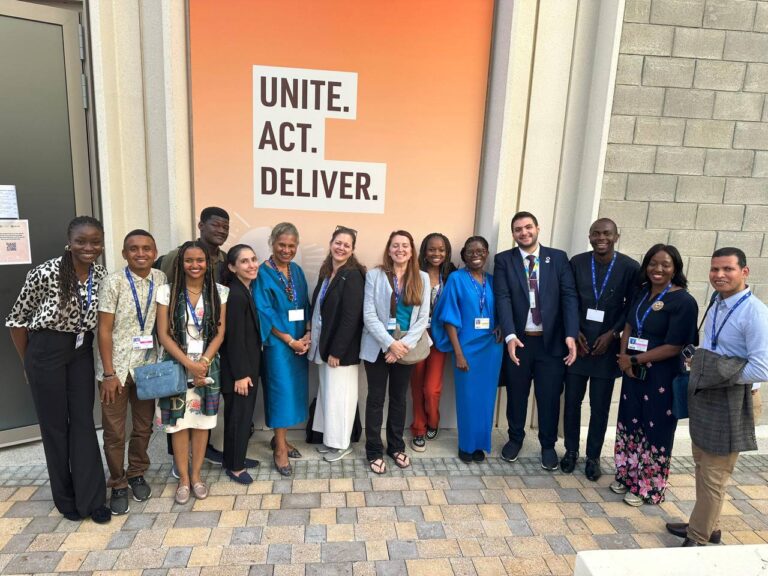
My involvement in diverse activities during COP28 was both enriching and impactful:
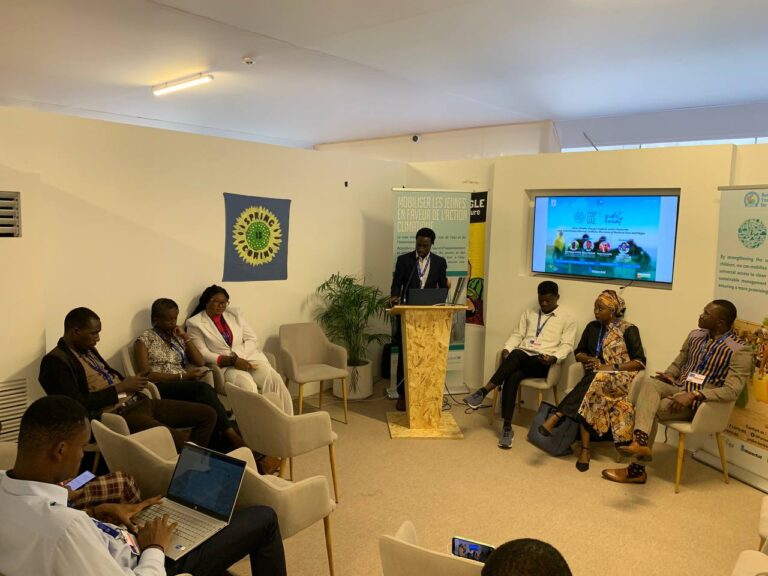
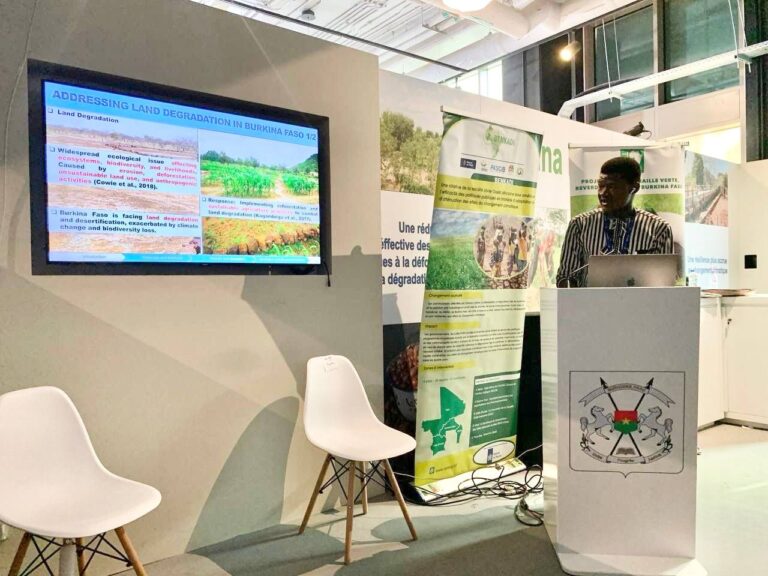
During COP28, it was my first time to engage with the national delegation as a young person in terms of negotiations. Engaging with Burkina Faso’s national delegation during COP28 involved following the negotiations on adaptation, with a particular focus on integrating youth and gender perspectives into NDCs and National Adaptation Plans (NAPs).
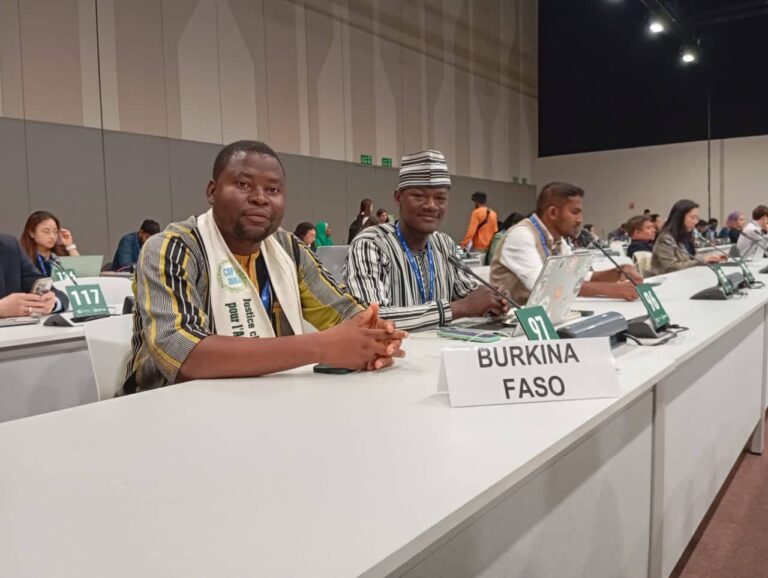
The main outcomes from COP28, as highlighted in the provided passage, revolve around the adoption and emphasis on NbS as a critical strategy to address the human-induced climate crisis. Here are the key outcomes:
The COP28 outcomes, as outlined in Decision CMA.5, para 55, underscore the importance of nature-based solutions not only for climate change mitigation but also for addressing broader issues such as human health, ecosystem protection, and economic and social resilience. The concept of “One Health” is highlighted, emphasising the interconnectedness of environmental, human, animal, and ecosystem health. This holistic approach recognises that addressing climate change is inseparable from broader health and well-being considerations.
Decision CMA.5, para 33, emphasises the integration of biodiversity conservation with the Kunming-Montreal Global Biodiversity Framework agreed upon at COP15 of the UN Convention on Biological Diversity in 2022. This integration reflects the acknowledgment that addressing climate change and biodiversity loss should be pursued in tandem. The engagement with biodiversity conservation networks, such as the Global Youth Biodiversity Network, further supports this interconnected approach.
Decision CMA.5, para 63(d), encourages the use of NbS to protect inland water, mountains, and coastal ecosystems. It breaks down terrestrial and marine ecosystems, highlighting the comprehensive nature of NbS applications. The focus on inland water, including wetlands, and the effectiveness of peatlands in addressing climate impacts reinforces the specific roles that different ecosystems play in climate resilience and mitigation.
While not explicitly mentioned in the provided text, the establishment of the Loss and Damage Fund on the first day of COP is a significant outcome. This fund aims to address the financial needs of the most vulnerable countries coping with the damages of climate change beyond adaptation. The text notes that this success should not overshadow the prolonged struggle of vulnerable countries to access financing for addressing climate-related damages, underscoring the importance of sustained and equitable financial support.
As a first-time participant in a UNFCCC COP, the experience was transformative. The networking opportunities, diverse engagements, and contributions to the SRHR and Climate Factsheet deepened my understanding of these interconnected global challenges. The exposure gained at COP28 will undoubtedly shape my future initiatives and efforts in climate change adaptation and biodiversity conservation.
The UNFCCC COP28 in Dubai was a testament to global unity and collective action to address the climate crisis and its related drivers. The collaborative efforts, diverse discussions, and spirit of inclusiveness on display at the conference reflect the urgency and commitment needed to combat climate change.
As an environmentalist and climate advocate, my trip to COP28 reaffirmed the importance of individual contributions in steering collective efforts towards a sustainable and resilient future.
References and helpful links:
Adaptation Gap Report 2023 | UNEP – UN Environment Programme
Video Nouhou Side event
Navigating the promise of nature-based solutions at COP28 and beyond – UNEP-WCMC
wwf_our_climates_secret_ally_uncovering_the_story_of_nature_in_the_ipcc_ar6.pdf (panda.org)
Nature-based Solutions (NbS) is an umbrella concept
Summary report 30 November – 13 December 2023 (iisd.org)
Information about the author:
Nouhou Zoungrana is an AFAS fellow from the 1st master cohort based at the Université Félix Houphouët-Boigny in Côte d’Ivoire.
(nouhou.zoungrana[at]gmail.com)